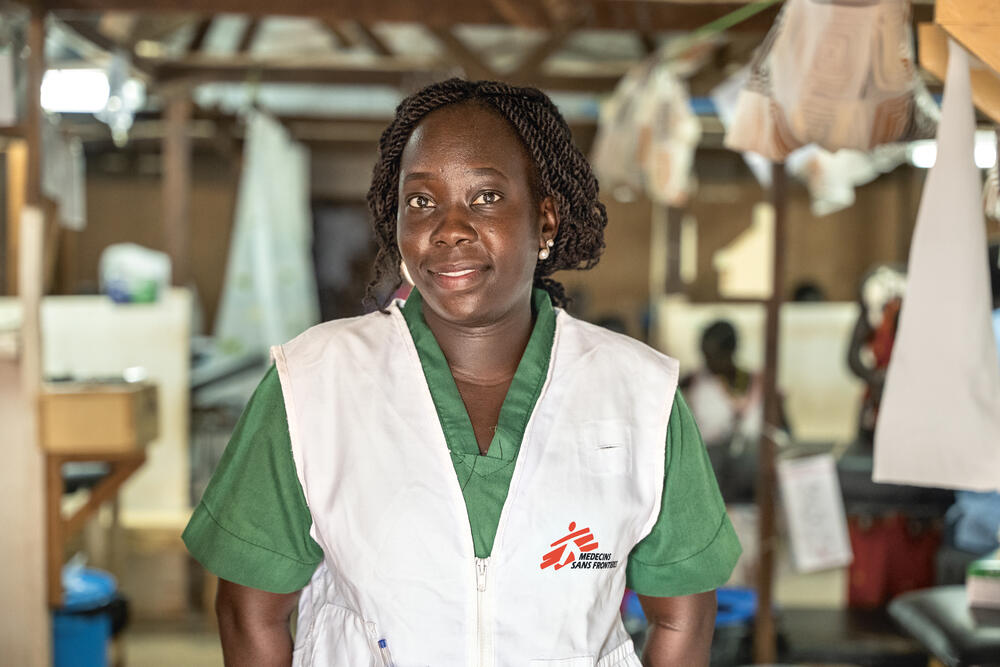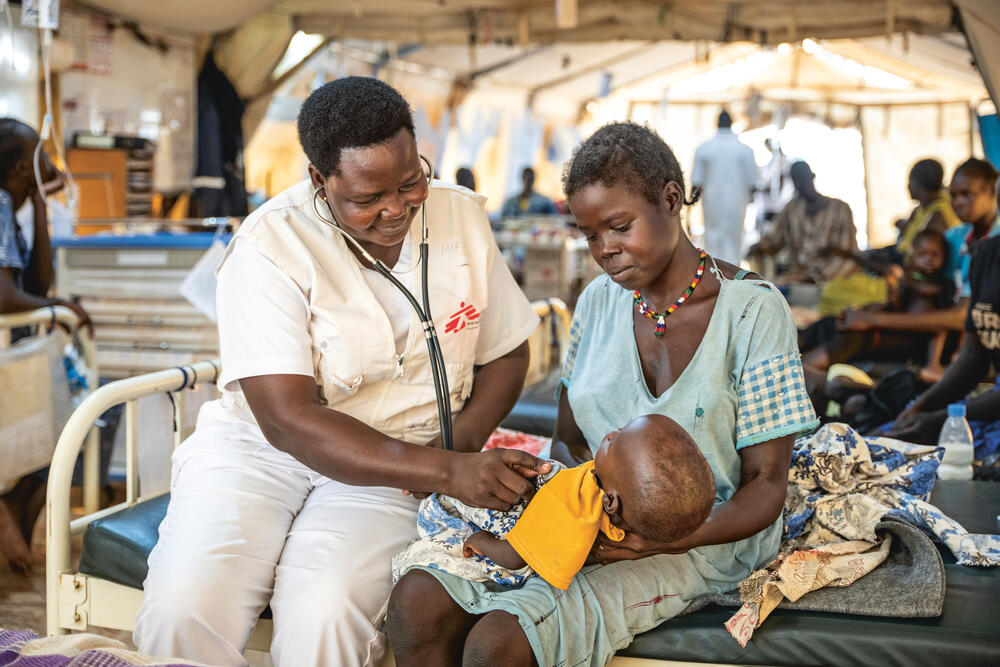Staff story: In the footsteps of my mother
Juliana Alexander Justin works as a clinical officer in the emergency department of a Médecins Sans Frontières / Doctors Without Borders (MSF) hospital in South Sudan.
The country suffers from a lack of experienced doctors, and so clinical officers – medics who have three years of training – form the backbone of healthcare in South Sudan, plugging the gap and often taking on immense responsibilities.
However, for Juliana, this is a childhood dream come true.
"As a child, I spent many nights in the hospital.
I grew up in the town of Wau in South Sudan, where my mother worked as a nurse. She often took me with her on her night shifts so that I could look after my little sister, who was still a baby. I
loved watching my mother talking to patients in a calm voice, taking their blood and handing out medication. I was fascinated by her ability to help the sick and injured.
Those nights made me want to become a doctor one day.
"The mother told me, completely exhausted, that she had been walking to the clinic for a day and a half... that's how it is for many families
However, after I finished school, my parents were unable to pay the fees for medical school. I was lucky though, because at that time the South Sudanese government set up training scholarships for nurses, midwives and clinical officers.
The aim was to counteract the high maternal and infant mortality rate in the country. I applied and was successful: as a clinical officer, I was able to come close to my professional dream.
Getting there was not easy. My mother tongue is Balanda, and, at school, we were taught in Arabic, but now the entire training was in English, which I didn't speak very well at that time.
I also had to quickly take on tasks in clinical work that I wasn't actually trained for. There are far too few doctors in South Sudan as a whole. We clinical officers fill the gap, despite only having three years of training.
Carrying such a huge responsibility was hard at first. There were times when I could only motivate myself to keep going because, despite all the setbacks, I could see every day that many of my patients were getting better and better.
I am now a very experienced medic and have been working for MSF in the emergency room in Aweil in the north of the country for seven years. We provide free help for around 1.3 million people.
During the malaria season, for example, we have to care for many children at the same time with very few staff, and many of these children are in mortal danger. I then work in a highly concentrated manner so as not to lose any time.
I recently prepared a blood transfusion for a seriously ill child. The mother told me, completely exhausted, that she had been walking to the clinic for a day and a half. She had no money for transportation.
That's how it is for many families. I was glad that she had made it to us in time.
I always have to expect the worst in my work. What helps me to endure this is the strong support in our team. We give each other advice, are there for each other in difficult moments and thank each other for the good work we do.
But what gives me the most strength and confidence for my job are my patients and the knowledge that I can do a lot for them – just as my mother was once able to do a lot for her patients."
MSF in South Sudan
In July 2011, South Sudan became the world’s newest country after gaining independence from Sudan. The peace deal that led to the split also ended Africa’s longest running civil war. But in December 2013, South Sudan civil war erupted again, forcing millions of people from their homes, leaving many without access to basic necessities, such as food, water and healthcare.
Although a peace deal was reached in 2018, the security situation remains volatile in many areas, with factional violence continuing to hit communities hard.
Médecins Sans Frontières/Doctors Without Borders (MSF) works in hospitals and clinics throughout South Sudan, where we run some of our biggest programmes worldwide.

